Medical samples safely and professionally stored
Kanto Center 2 of NX WANBISHI ARCHIVES CO., LTD. is located in Ogawa Town, Saitama Prefecture, an area where the ground is firm and not prone to natural disasters. This facility is a base for information management, where the valuable information entrusted by clients is protected. The Center has a number of buildings on an extensive site surrounded by mountains, and one of the buildings is dedicated to the storage of cells and samples. NX WANBISHI receives material including human cells and samples, medicinal products, and raw materials for investigational drugs from medical and pharmaceutical companies, and safely and reliably stores and manages them at this facility under a rigid system of quality control and security.
Making a major contribution to this mission are the storage devices installed in the building, which include approximately 100 PHCbi ultra-low temperature freezers.
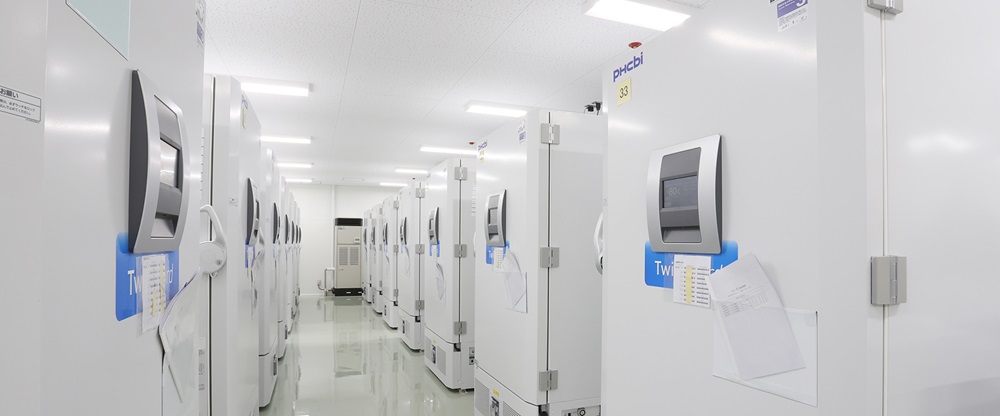
We spoke to Mr. Terukazu Kobayashi and Mr. Nao Tamada, who are supervisors at the Frozen Cell Storage Business Promotion Office, inquiring about why PHC products were selected and what role they play.
Huge business growth after obtaining a pharmaceutical manufacturing license
NX WANBISHI ARCHIVES CO., LTD. (hereinafter NX WANBISHI) was established in 1966 as a data solutions business. It provides a comprehensive service, covering the complete lifecycle of important data (confidential documents, materials related to drug development, historical materials for permanent preservation, tapes and other recording media, digital data, etc.) from the generation stage to use, storage, and deletion. In 2015, a new cell and sample storage business was started.
“We decided to move into this business because we were hearing from medical product companies that had entrusted us with management of their documents about the difficulties they faced storing human samples inhouse,” says Mr. Kobayashi. “We thought that if we could help them in that area, it would allow them to concentrate on their core business. We discussed this internally, and started work on it as a new business.
The service started with storage in a liquid nitrogen tank, and a PHCbi ultra-low temperature freezer was installed in 2017 to meet the need for management at different temperature ranges depending on the material to be stored and the requirements of the client. The business expanded greatly in 2018 when the company was granted a license for pharmaceutical manufacturing (packaging, labeling, and storage). “Until then, we had mainly been handling samples at the research stage, but after we got the license we were able to handle materials.
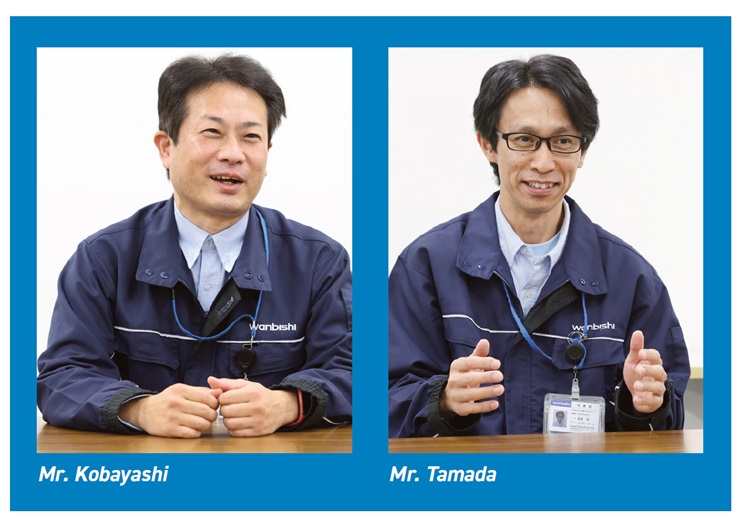
““Many of our clients find it is easier and more efficient to leave the storage to us. After all, we are storage professionals!”.”
The service started with storage in a liquid nitrogen tank, and a PHCbi ultra-low temperature freezer was installed in 2017 to meet the need for management at different temperature ranges depending on the material to be stored and the requirements of the client. The business expanded greatly in 2018 when the company was granted a license for pharmaceutical manufacturing (packaging, labeling, and storage). “Until then, we had mainly been handling samples at the research stage, but after we got the license we were able to handle materials for storage from manufacturing departments as well,” Mr. Tamada explains. NX WANBISHI now has contracts with some 40 companies, from Hokkaido in the north to Kyushu in the south. All of these are medical or pharmaceutical companies, and 80% of the materials stored are cells or samples from humans. The remaining 20% are materials such as raw materials for pharmaceutical products or for investigational drugs.
Saving space, time, and effort to let clients focus on their core business
What sort of companies use the services provided by NX WANBISHI? “It is becoming more common for Japanese pharmaceutical companies to have their active pharmaceutical ingredients manufactured overseas and to then store them temporarily in-house. After this, the ingredients are again sent overseas, where a pharmaceutical company is commissioned to manufacture the finished product,” says Mr. Kobayashi. “Rather than investing in setting up storage space that complies with the regulations on good manufacturing practices just for temporary storage and management of samples, many of our clients find it is easier and more efficient to leave the storage to us. After all, we are storage professionals!”
Many requests also come from companies that are short on space for storage. In particular, companies that carry out laboratory tests are obliged to store samples for a fixed period after the end of clinical trials—as the number of clinical trials increases, companies run out of storage space and find themselves unable to take on tests for new trials. More and more companies are now only storing material that is in active use in-house, and entrusting samples that need to be stored for a fixed period to NX WANBISHI
When items are received for storage, the client is asked in advance what temperature range they wish for. The four basic ranges are -150ºC or lower, -80ºC, -30ºC, and 5ºC, but custom temperature ranges can also be ordered. Depending on the contract, a freezer may be dedicated to one company or may be for shared use. With a shared use freezer, the standard method is to use a storage box.

PHCbi products selected through detailed research and interviews with customers
All sample and cell storage rooms are kept at a temperature of 24ºC or cooler and a maximum humidity of 60% to maintain the best operating environment for PHCbi ultra-low temperature freezers. These freezers are enormously important for the business of NX WANBISHI, but why did the company choose PHCbi products? “We carried out a detailed comparison with the competitors, looking at price, equipment performance, maintenance service, power consumption, and heat dissipation,” says Mr. Tamada. “One of the things we found was that PHCbi products not only experienced fewer failures, but if anything did ever happen the company has an excellent support system. Another thing was that in interviews with customers, PHCbi was rated highest for reliability and performance. These were the biggest reasons for the decision.”
Dual cooling system for reassurance and fail-safe risk management to ensure safety
“An important part of our job is to minimize risk so that clients can use our service without any worries at all. The dual cooling system with two refrigeration circuits in the main unit gives reassurance,” says Mr. Kobayashi. In addition, NX WANBISHI has an auxiliary cooling system for every six units. There is also one “hot” standby—an actively running backup device—for every few units, which reduces risk by allowing immediate transfer of stored material should anything unexpected occur.
The monitors showing the internal temperatures of the freezers are checked visually once in the morning and once in the afternoon, and the records are entered manually into the logbook. “We manage as many as 100 freezers, so we are glad we have these highly visible and readable monitors,” says Mr. Tamada. The freezers are fitted with battery-operated recorders that continually record the internal temperature, 24 hours a day and 365 days a year. The paper records are kept for perpetuity. One of the challenges is how to keep the time spent opening and closing the door of a freezer as short as possible. Especially with freezers at the -30ºC temperature range, where there are large temperature fluctuations, the rule is that any work with the door open must be carried out rapidly, in less than one minute. The greatest risks are considered to be an earthquake under the Tokyo metropolitan area and a Nankai Trough earthquake, and Mr. Kobayashi emphasizes that every possible measure has been taken to withstand the expected intensity of such events: “The freezers have anchors that are calculated to prevent them toppling over, and we have installed our own power generators to get us through any power outages caused by an earthquake. It is because we have this exhaustive risk management that our clients are happy to entrust their materials to us for safekeeping.”

The challenges for the future are biopharmaceuticals and regenerative medicine
NX WANBISHI has two issues for the future: the first is to focus efforts on the storage of biopharmaceuticals, which have seen increased production in recent years, and the second is to enter the field of regenerative medicine. Looking ahead, Mr. Kobayashi says, “We intend to establish even more stringent management and operations so that we can respond to requests from clients at any time. We are aiming to obtain a manufacturing and distribution license for regenerative medicine products, and for this we are looking at installing equipment such as biological safety cabinets. We are hoping to move forward with the preparations in consultation with PHCbi.”
The basic stance at the Kanto Center 2 is that any information entrusted by a client is entirely unique. “Cells and samples are also irreplaceable information, that will become something of great significance. Day and night we labor with a simple mindset—our clients put their heart and soul into the materials they entrust us with; we put our heart and soul into looking after them.” Mr. Kobayashi’s words leave a powerful impression.
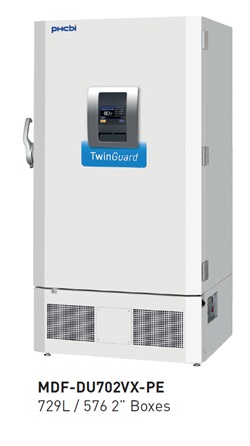
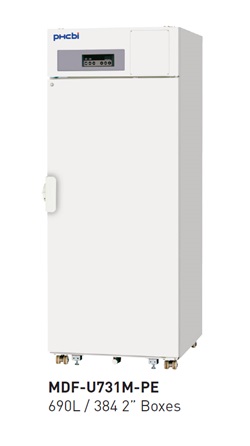
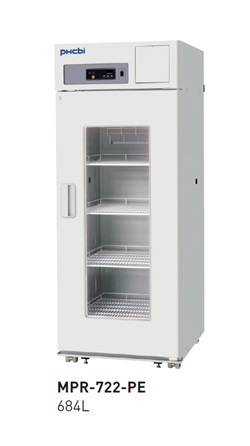
Go to all Preservation products